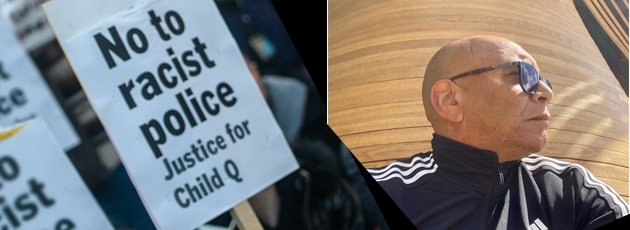- Home
- News & Blogs
- About Us
- What We Do
- Our Communities
- Info Centre
- Press
- Contact
- Archive 2019
- 2015 Elections: 11 new BME MP’s make history
- 70th Anniversary of the Partition of India
- Black Church Manifesto Questionnaire
- Brett Bailey: Exhibit B
- Briefing Paper: Ethnic Minorities in Politics and Public Life
- Civil Rights Leader Ratna Lachman dies
- ELLE Magazine: Young, Gifted, and Black
- External Jobs
- FeaturedVideo
- FeaturedVideo
- FeaturedVideo
- Gary Younge Book Sale
- George Osborne's budget increases racial disadvantage
- Goldsmiths Students' Union External Trustee
- International Commissioners condemn the appalling murder of Tyre Nichols
- Iqbal Wahhab OBE empowers Togo prisoners
- Job Vacancy: Head of Campaigns and Communications
- Media and Public Relations Officer for Jean Lambert MEP (full-time)
- Number 10 statement - race disparity unit
- Pathway to Success 2022
- Please donate £10 or more
- Rashan Charles had no Illegal Drugs
- Serena Williams: Black women should demand equal pay
- Thank you for your donation
- The Colour of Power 2021
- The Power of Poetry
- The UK election voter registration countdown begins now
- Volunteering roles at Community Alliance Lewisham (CAL)
Stop acting like a child. How systemic racism attempted to criminalise Child Q

Former Senior Political Adviser to the Mayor of London and Director of Policing and Equalities Lee Jasper writes exclusively for OBV offering a detailed and forensic critique of the Child Q scandal. This is Part One. Click here for Part Two
The case of Child Q and the systemic racism that saw the institutional racism of the Metropolitan Police combine with institutional the racism of the school to devasting effect.
The celebrated African American novelist, poet, and social activist Alice Walker once stated that
"The most important question in the world is, 'Why is the child crying?'

The most important answer to Alice's question concerning British black children is that they cry because they’re not allowed to be children.
The story of the horrific treatment of #ChildQ bears vivid testimony to this awful truth.
A 15-year-old Hackney Black girl, a child, was strip-searched in school by teachers and the Met Police on suspicion she was hiding Cannabis.
What happened was unbelievable, and reading the Local Child Safeguarding Practice Review report by Hackney Council. Child Q accused by her teachers of 'smelling like marijuana" was subjected to treatment reserved for international drug couriers. In short, she was handled as if she were a bone fide member of Pablo Escobar's Medellin Cartel.
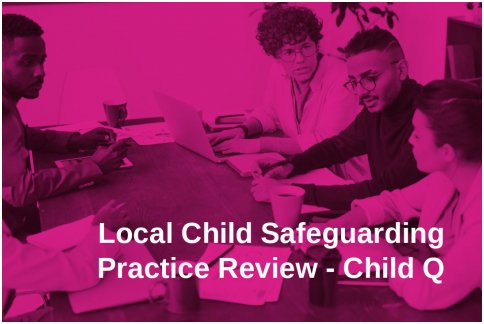
Adultification is a phenomenon long known to black communities, whether it's the presumption that a boy is a man or a black girl is a fully grown woman. It represents a genuinely insidious and obnoxious aspect of racism. Black children are all too often seen through the prism of race and are constantly assessed by authority figures as a threat.
They’re disproportionately punished and routinely disbelieved.
We have witnessed this Adultification phenomena in the UK in regards to both child refugees and Black British children.
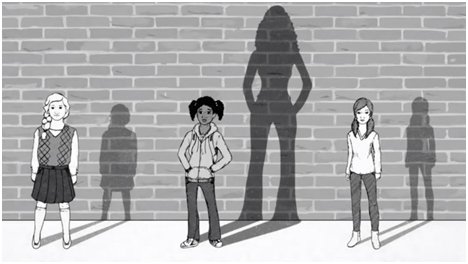
An Ofsted study published in 2019 concluded that British Black school children are being disciplined more harshly than their white counterparts.
Like Child Q, Black girls all over the UK are forced to confront the brutal realities and the unprecedented power of institutional racism in the classroom, a supposed place of safety. This critical study concluded that black boys and girls were seen as less innocent than white children of the same age, negatively affecting how teachers, police officers and authority figures treated them.
Further research conducted in the United States found that black girls were judged to have more adult-like traits than white girls through all stages of childhood.
The US study found that when black girls misbehave, authority figures often consider their behaviour bad, wilful, and deliberate. Their protestations are viewed as calculated dumb insolence, in contrast to their white counterparts committing the same offences whose infractions are often considered as innocent child-like mistakes.
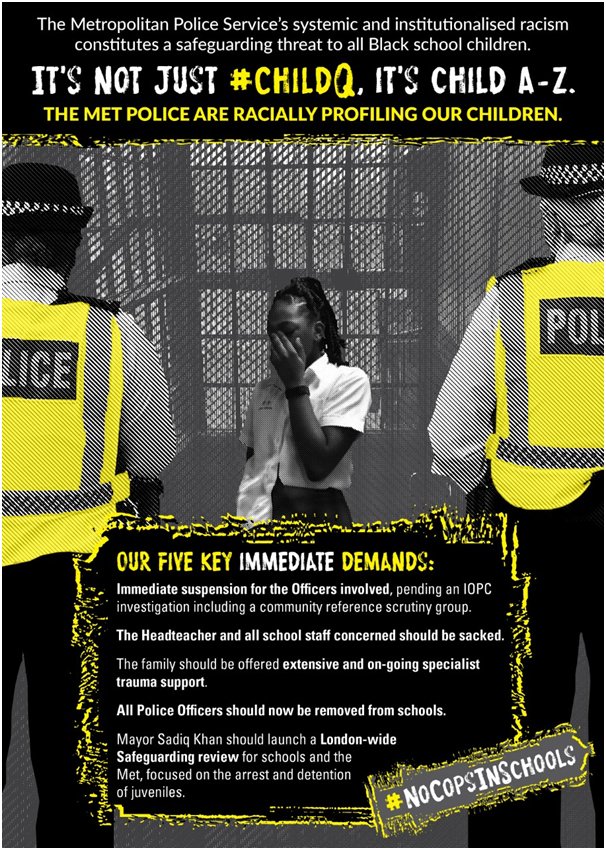
The dehumanisation of Blackness and its effects on Black women and girls has deep roots in British 17th-century colonial history. The toxic rationale of white supremacism that lawfully designated Black people as three-fifths human-provided 'justification' for what I consider to be the greatest crime in human history, the global enslavement of Africans during the Transatlantic slave trade.
The racial categorisation and stigmatisation that inevitably followed can still be detected today, forming the modern-day basis for racial profiling and police brutality. For the last 400 years, we've witnessed black women and young girls being consistently subjected to a unique and horrific level of sexual barbarism and savage pathological violence, predominantly but by no means exclusively, at the hands of white people.
Whilst we rightly condemn those involved in the Child Q case because child safety in school is vitally important, the reality for the black community is that the primary threat to Black women and girls in terms of serious harm, i.e., domestic violence, murders, physical battery and child sex abuse comes primarily from black men and boys. We must recognise this reality.

On the one hand, we cannot accuse white people of being blind to the racism and violence that Child Q faced when we remain silent on the significant issue of violence and abuse against Black women and girls. Here I respect the fabulous work of organisations such as Hackney-based Sister Space, the Centre for Women's Justice, and many others.
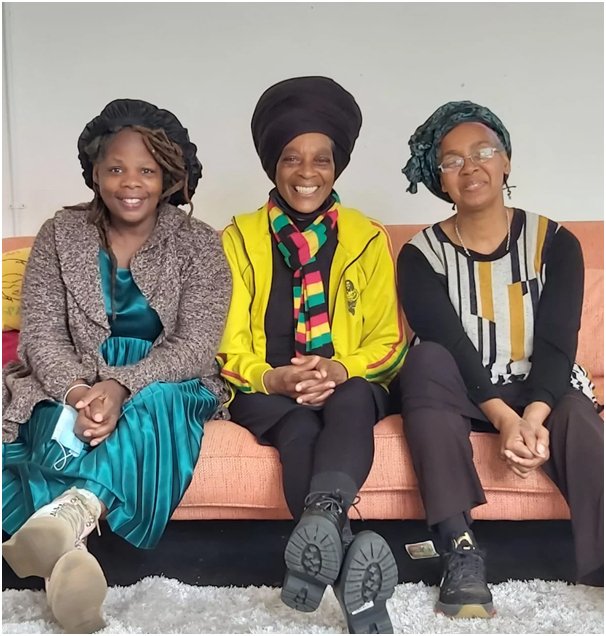
On this I’m speaking specifically to Black men because the context around child safety concerning girls is so important.
As we witness the outpouring of genuine emotion and anger from our community genuinely worried about the safety of Black women and girls and its harm reduction we're concerned about, then with all due respect, it's the home and not the school that should be our focus.
What happened to Child Q was an appalling infringement of her human rights and represented a most egregious example of an act of racism inflicted on a black child in recent times. Reading the Hackney Council report, I was reminded of some of the most horrific cases of black women suffering police racism and brutality.
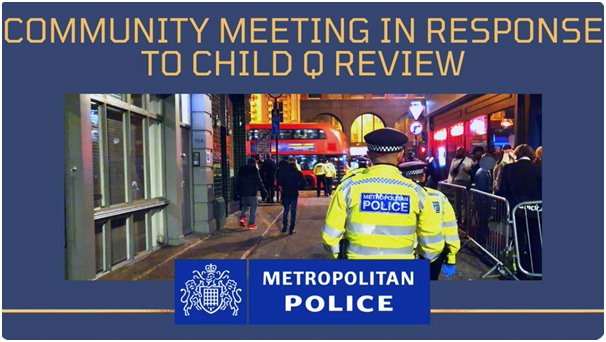
And make no mistake, there is a clear historical context here; what happened to Child Q cannot be seen in isolation to the history of our lived experience of police racism.
From Joy Gardner to Sarah Reed to Naomi Bennet, Bianca Williams to Nicole Smallman and Bubba Henry, the history of Met police and black women is replete with far too many examples of institutionalised racism and police brutality.
Let's be real; the treatment of Child Q is a continuation of our lived historical experience that becomes immediately evident when we evaluate the rationale offered by both the school and Police officers for subjecting Child Q to an intimate body search.
